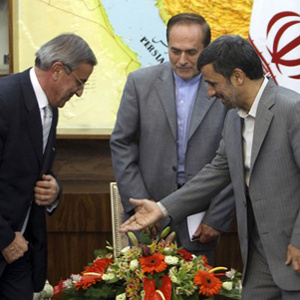Historical Lessons Not Learned

Obviously, the governments of Saudi Arabia, Lebanon, the United States and some European countries have made miscalculations, the ramifications of which they are unable to control. The international tribunal to investigate the case of Lebanese PM Rafik Hariri’s assassination fell under the influence of Israel and the United States, the current controversies triggered by Western-backed 14th of March alliance, and the Saudi King Abdullah’s visits to Beirut, Damascus and Cairo, all signal possible turmoil on Lebanon’s political stage in near future.
Although Saudi Arabia—under the leadership of King Abdullah—has been struggling to revive the 1960s Pan-Arab triangle of Cairo, Damascus and Riyadh to extend Arab clout over regional affairs, the course of developments in Lebanon and Palestine during the last two decades prove that the Taif Agreement signed in 1989 to end the 15-year civil war in Lebanon is gradually wearing off. On the other side of regional affairs stand Iran, Syria, and Hezbollah, who have created a new political paradigm—the paradigm of ‘resistance’ during recent decades.
One of the not-so-hidden primary objectives of Egypt and Saudi Arabia today, supported by the U.S., Israel, and the European Union, is to disengage the Resistance triangle and break down their strategic alliance, which heavily influences regional and Muslim world affairs. Behind the conjunction of the Saudi King’s regional tour, direct addressing of his diplomatic plans by the White House Press Secretary Robert Gibbs, and the new game played by the international court on Rafik Hariri’s assassination, is the old desire to force Hezbollah to submit to UN resolutions 1559 and 1701, to disarm and therefore become defenseless. Saad Hariri is repeating the strategic mistake committed by former prime ministers of Lebanon Najib Mikati and Fouad Siniora, which were orchestrated by extraregional forces. Such attempts merely make the already hazy prospect of Middle East peace worse.
But it seems that history repeats itself, and no one is willing to learn its lessons. Let’s look at what the fate of the new anti-Resistance plan will be: 1.) Syria is a key regional player and it possesses valuable tools that it hardly tends to trade-off. 2.). Lebanon’s unique confessionalism, although still standing through Saudi financial support and successful in maintaining a religion-based balance, is vulnerable against a solid Resistance front. In Lebanon, the Shia, or more aptly Hezbollah, have accomplished a historical mission, namely that of ousting Israel from Arab territories, and has turned into a solid power in Lebanese politics. It was Hezbollah that brought Lebanon the national identity it always lacked.
The United States, France, and Saudi Arabia cheered for a while when Syria withdrew its troops from Lebanon in 2005, but its return as a powerful player has proved that Damascus is in no way a factor easily marginalized. Almost all independent observers admit that undermining Hezbollah’s deterrence power and usurping its coveted internal telecom system has been the common desire of Mikati, Siniora and Hariri, always with the tacit approval of Tel Aviv and Washington. Similar anti-Resistance efforts, such as the Annapolis Conference in 2007, were aimed at containing the Resistance triangle—namely Iran, Syria and Hezbollah—and to reinforce Israel’s regional status. But perhaps another review of the 2006 war might teach some Arab politicians and their Western supporters what the possible outcomes of messing with Hezbollah can be.

